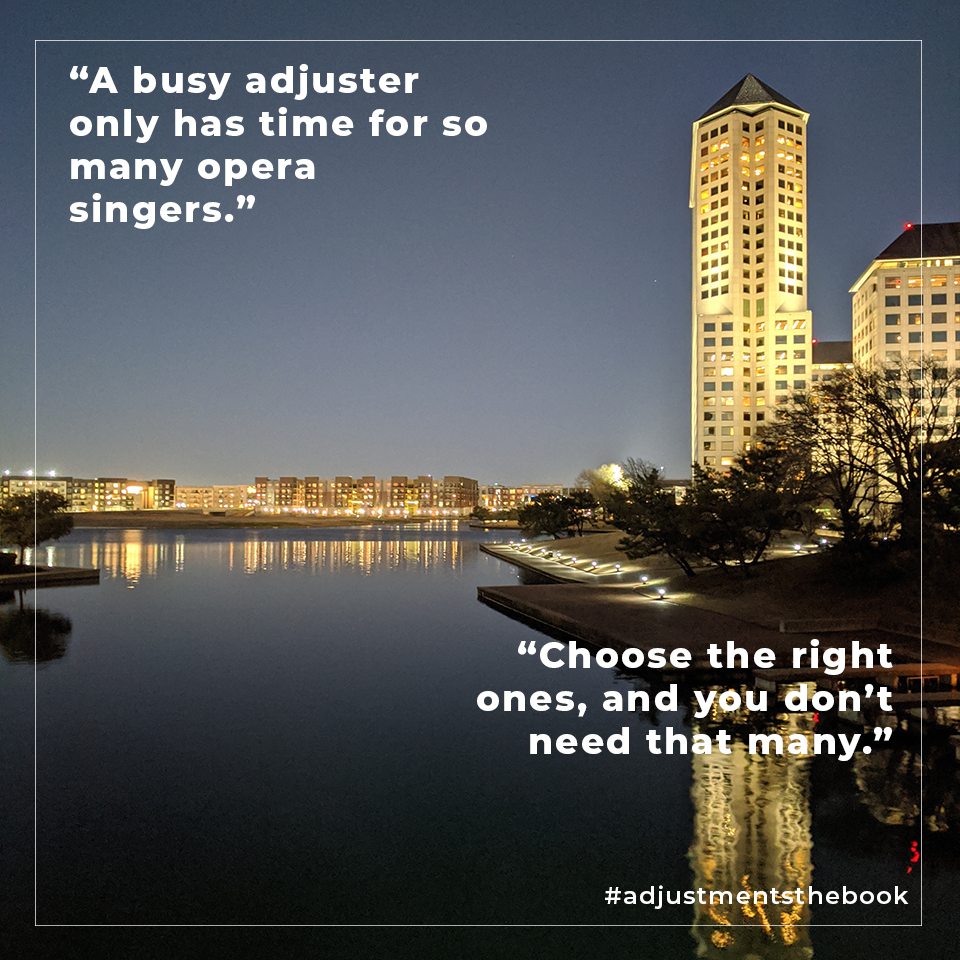
Music is one of those unexpected (for me) themes in Adjustments. There’s some Rolling Stones, some Dylan. Even some Patsy Cline. And there’s also Ivan Rebroff, the Russian opera singer.
Rebroff shows up early on in the story in the old man’s house while Will is trying to figure out how to leave. That really happened one afternoon. I was the adjuster with the old man and his made-up claim, listening to Ivan Rebroff CDs fighting inside myself to either stay the afternoon and let the generous, lonely man play his antique German concertina, or be the professional, write up his claim and get the heck out. Both came from some deep not-yet-aware awareness that knowing this man could change something in me.
I stayed. I had a couple of phone calls with Joe later, mostly just business. But on one call he told me that if anything ever happened to him, he wanted me to have a certain family heirloom I’d been so curious about at his house.
As I wrote Adjustments, an imaginary long-term friendship started with Joe. He mentored me in my imagination by poking into Will’s psyche in the story. It turns out that my imaginary Joe lived his whole life in John Keats’s negative capability, that concept of uncertainty that Will and I were so determined to understand and still haven’t managed to do. The whole point is to get comfortable with not understanding, with having the grasp of something just out of reach. It helps a person live in ambiguity, in the middle space, in that liberating realm where there is little either-or.
We all need Joe in our lives. Someone to hold up a mirror in our line of sight so we can see what we’re missing, not just about ourselves, but about the beautiful people and the world around us, about the other we’ve not yet fully seen.
It could start with opera music, believe it or don’t.

